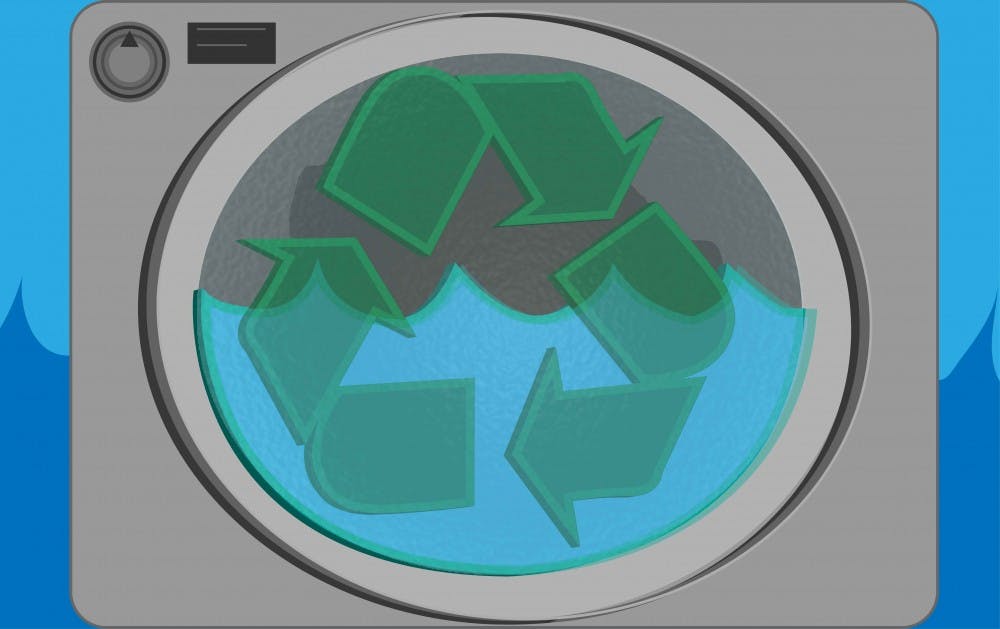A lot of water and electricity goes into doing laundry, making cleaning one's clothes a sore spot for anyone trying to decrease their environmental footprint.
But being clean doesn't have to come at the expense of being green. Or at least as much.
A study released in 2010 by an interdisciplinary team of researchers at ASU states that changing consumer laundry habits to be more sustainable could reduce CO2 emissions by around 105 million metric tons. This accomplishes roughly the same effect as taking 23 coal-fired power plants offline, the report said.
With thousands of students utilizing the free laundry services that come with student housing at the University, if a majority of them started being more conscious of their laundry usage, it could have a meaningful impact on the environment.
While many ASU students might not think twice about using hot water to clean their clothes, it is one of the areas where consumers can cut down their carbon footprint — with about 90 percent of the energy used in laundry going toward heating water, according to the EPA.
While many washing machines utilize hot water from a boiler, there are some settings that require the machine to heat the water to a certain temperature itself. In order to do so, washing machines load water into a heating space occupied by a heating coil that heats water up to a certain temperature that is read on an internal thermostat.
For clothing that is extremely soiled, hot water might be required. But for the majority of laundry needs, cold water should do the trick.
An ultra effective technique a green master utilizes in the laundry room is to always wash a full load and use a cold setting.
According to the University of Michigan, the average washing machine will use around 13,500 gallons of water per year, which is equivalent to the amount a human will drink in a lifetime.
Washing machines and laundry detergent have become just as effective in cleaning clothes in cold water as they are in hot water. According to Consumer Reports, the cleaning enzymes in newer laundry detergents have even become more effective at lower temperatures.
In modern detergents, enzymes intended to break down substances, like proteins and other organic matter, help reduce the amount of time clothes need to spend in the washer. These enzymes help the soap quickly clear away the broken down material on clothes faster and more efficiently.
The most widely used enzyme in household detergents are labeled as proteases. Any detergent with that on its ingredients list is a great addition for anyone who wishes to make their laundry day more green.
Designating groups of clothes as worn, but not dirty, can help reduce the amount of laundry loads per person. There are many times where clothes barely see the light of day, but are still thrown in the hamper.
Washing clothes, especially jeans, can also reduce their comfort and make them fade faster. The CEO of Levi Strauss & Co., Chip Bergh, announced publicly that he himself practiced this habit and had not washed his jeans for over a year since he bought them.
Hanging laundry not only dries it, but also reduces the need to iron. The sun acts as a natural iron to remove wrinkles in the fabric while removing water.
For people who do not want to hang their clothes, making sure the lint trap in the dryer is clean will assist air flow and will reduce the time needed to dry a load of laundry.
These tips are essential to have in any sustainability toolbox. There is no better place to go green than at the University with one of the most innovative sustainability schools in the nation.
Reach the reporter at mcharbel@asu.edu or follow @CharbelMilo on Twitter.
Like The State Press on Facebook and follow @statepress on Twitter.




